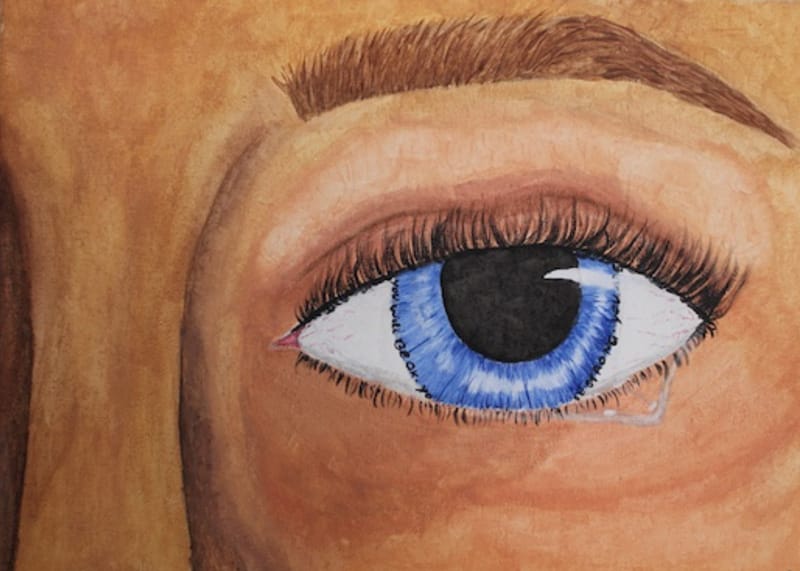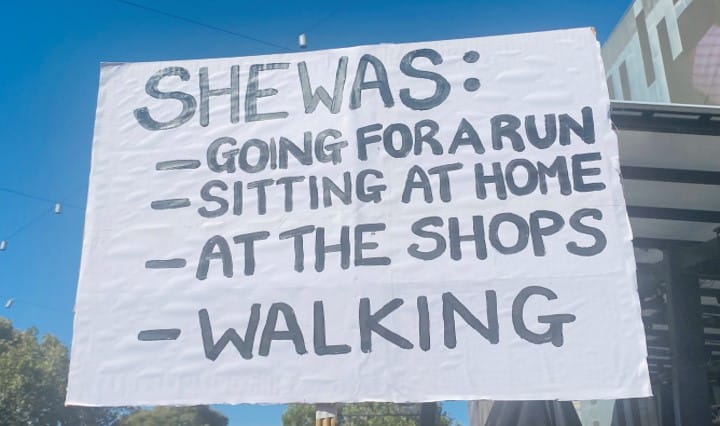
Four months into 2024, 33 women in Australia have been murdered, largely by a man they knew.
The data comes from Australia’s Femicide Watch, a site run by journalist and researcher Sherele Moody. The legacy press equates those figures to roughly one woman every four days.
On 30 April, The Guardian detailed a new report by the Australian Institute of Criminology, which said the rate of women killed by an intimate partner in Australia increased by nearly 30% in 2022-23 compared with the previous year.
The previous weekend (26 to 28 April), a media blitz saw thousands of people, victim-survivors, activists, advocates and politicians, march across Australia chanting to end the shadow pandemic of violence against women.
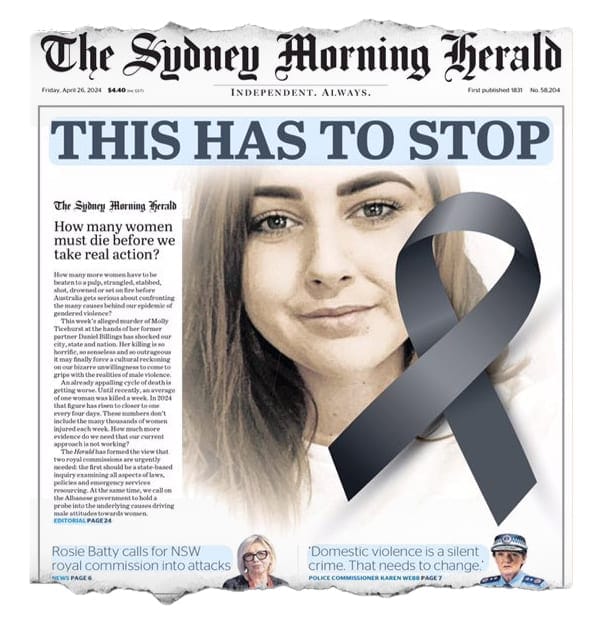
Media research inspired by #MeToo
In our recent collections Violence Against Women in the Global South: Reporting in the #MeToo era and Reporting on Sexual Violence in the #MeToo era , it’s well-documented by 29 journalism female scholars from Australia, the UK, the US, Europe, the Middle East, Asia, and Africa, that violence against women is a global issue at crisis point, and that two in three women will experience sexual violence in their lifetime.
Our research offers rich empirical data that the #MeToo movement – the 2017 metamorphosis of #MeToo, conceived by black social activist Tarana Burke in 2006 – precipitated an explosive increase in the media visibility of women confronting, seeking justice and solutions against male perpetrators of violence in the global north and global south.
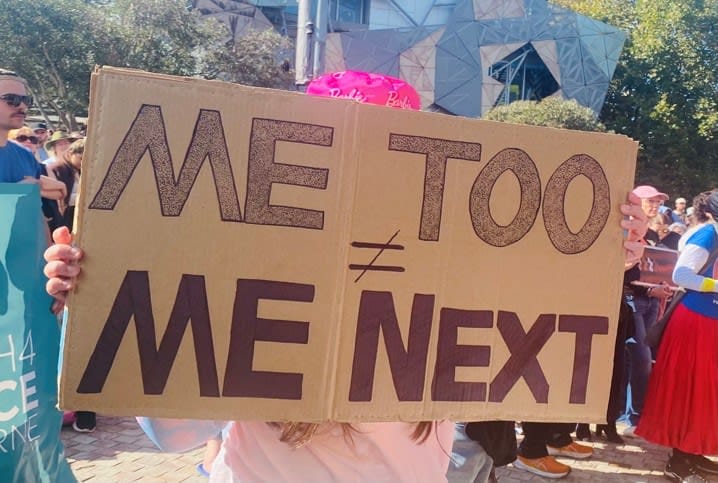
Our collections were sparked by the Pulitzer Prize-winning reportage of two female journalists, New York Times reporters Jodi Kantor and Megan Twohey, whose forensic investigation about Hollywood film producer Harvey Weinstein’s sex crimes sparked the #MeToo revitalisation, and the global callout to 85 million victim-survivors since October 2017 to tell their stories of violence in the legacy press and on social media.
Calling out #MeToo – a zero-sum process?
The overturning of Weinstein’s rape convictions in a New York City court on 24 April offered a rethink about victim-survivors’ struggles to be believed.
However, as the #MeToo founder Burke told The Hollywood Reporter at a press conference in New York City after Weinstein’s recent successful appeal:
“This is not a blow to the movement. It’s a clarion call, and we’re prepared to answer that call.”
Weinstein remains guilty of other sex crimes by a Los Angeles court.
In Australia, we had a glimmer of hope on 15 April when former federal political staffer Bruce Lehrmann lost his civil defamation case against Network Ten (and journalist Lisa Wilkinson).
Wilkinson, who interviewed the victim-survivor Brittany Higgins in 2019, said after this new ruling: “I published a true story about a rape.”
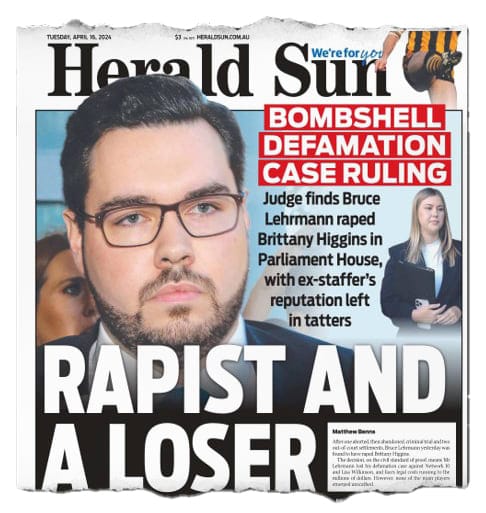
Media lessons from the Weinstein and Lehrmann cases?
The different outcomes in the recent Weinstein #MeToo appeal in the US, and the failed Lehrmann defamation case in Australia, illustrate three issues about the rape myth, which we explore in our #MeToo media collections.
First, how victim-survivors have historically lived in a contested masculine space, impeded from attaining justice by systemic prejudices and inadequacies in the media and the criminal law systems.
Second, reportage about sexual violence, sprinkled with revenge and redemption, is a commercially viable staple of journalistic storytelling, where rigorous testimonies of women reported by the media are vehemently tested in male-dominated courts.
Finally, how female victim-survivors are often seen as unbelievable, untrustworthy and doubtful subjects in cases against (often powerful) white, male perpetrators.
As media scholars Sarah Banet-Weiser and Kathryn Claire Higgins note, reportage about sexual violence is linked to a “mediated economy of believability”, where “the public bids for truth are made, evaluated and authorised”.
As an economic commodity, they said believability has two key meanings – the “capability of being believed”, and the “quality of being convincing”.
Within these meanings, subjectivity and performance overlap in the context of sexual violence, and in a medicated system of representation.
Contested spaces: She said/he said
Like Banet-Weiser and Higgins, our research found that male perpetrators are often culturally-empowered to lie about their actions, and not to care about consent, while victim-survivors are placed in vulnerable positions riddled by traumatic doubts and disbelief, and a lingering code of silence.
In sexual assault court cases, juries should only see evidence that is relevant to the trial, but their view is often tainted by trials by media(s) beforehand.
In the Lehrmann civil defamation case, social media users on X (formerly Twitter) were urged not to share stories about the case until Justice Michael Lee made his decision on 15 April.
In the overturning of Weinstein’s sexual crimes conviction in a New York court on 24 April, The New York Times’ Kantor said that decision was made by seven judges (four yes to three no), the majority of whom were female. The court ruled the trial and the rules of evidence had not been fair to Weinstein.
With the media and legal bar set so high seven years after the global awakening of #MeToo, it’s an ongoing struggle for female victim-survivors to provide bulletproof evidence in the contested spaces of “she said/he said”.



